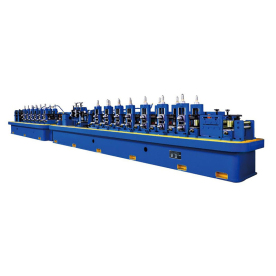[Precision Impedor for Circuits]Understanding the Importance of Precision Impedors for Circuits: Enhancing Performance and Accuracy in Electrical Engineering
News 2024-7-20
In the world of electrical engineering and circuit design, accuracy and precision are paramount. One critical component that plays a crucial role in ensuring the reliability and performance of various electronic devices is the precision impedor. Precision impedors are resistive or capacitive devices whose primary function is to introduce a specific impedance into an electrical circuit, often enhancing the overall measurement and performance of the device.
What is a Precision Impedor?
A precision impedor is a highly accurate electrical component that provides a precise impedance value, which can be either resistive (resistors), reactive (capacitors or inductors), or a combination of both. These components are particularly essential in applications where precision is critical, such as in measurement equipment, signal processing, and RF (Radio Frequency) applications.
Precision impedors are designed with very tight tolerances, typically within ±0.01% to ±1%, which means that they can maintain their specified values across varying temperatures and electrical conditions. This level of accuracy is crucial in high-stakes environments where even minimal discrepancies can lead to significant errors in measurements or signal distortions.
Applications of Precision Impedors

Understanding the Importance of Precision Impedors for Circuits: Enhancing Performance and Accuracy in Electrical Engineering
1. **Measurement and Testing Equipment**: In laboratories where precision measurements are necessary, precision impedors can be used in test circuits to ensure accurate readings. They can be integrated into testing equipment for semiconductors, antennas, and other electronic components.
2. **Audio and Video Equipment**: In audio systems, precision impedors are used in equalizers and crossover networks to ensure signal clarity and fidelity. Similarly, in video equipment, they help maintain signal integrity for high-definition transmission.
3. **Telecommunications**: For RF applications, precision impedors serve as load components in transmitters and receivers, helping to match impedances and reduce reflections that can distort signals.

Understanding the Importance of Precision Impedors for Circuits: Enhancing Performance and Accuracy in Electrical Engineering
5. **Consumer Electronics**: Even in everyday consumer devices, precision impedors can contribute to enhanced performance, such as in high-end audio systems or advanced gaming consoles.
The Importance of Precision
The significance of precision impedors in circuit design cannot be overstated. Any mismatch in impedance can lead to various issues, including signal reflections, loss of power, distortion, and even complete circuit failure. By incorporating precision impedors into circuit designs, engineers can ensure the following benefits:
- **Enhanced Signal Integrity**: Precision impedors minimize the unwanted variations in waveforms and signals, maintaining the quality of the output signal.
- **Improved Performance**: With accurate impedance matching, devices can operate at peak efficiency, leading to better overall performance and longer functional life.

Understanding the Importance of Precision Impedors for Circuits: Enhancing Performance and Accuracy in Electrical Engineering
- **Reliable Measurements**: In testing and measurement applications, the use of precision impedors leads to accurate data collection which is essential for research and development, quality assurance, and standards compliance.
Selecting the Right Precision Impedor
When selecting a precision impedor for specific applications, engineers must consider several factors. Tolerance levels, temperature coefficients, power ratings, and frequency response are among the critical specifications that must be evaluated based on the intended use. Additionally, the choice between resistive, capacitive, or inductive impedors will depend largely on the specific requirements of the circuit design.
One of the significant advancements in recent years has been the development of smart impedance measurement technology that allows for real-time monitoring and adjustment of impedors within circuits. This technology not only ensures accuracy but can also vary impedances dynamically based on circuit conditions, offering unparalleled flexibility for complex devices.
Conclusion
Precision impedors are indispensable components in modern electrical engineering, providing essential accuracy and reliability to circuits across various industries. As technology continues to advance, the demand for these precision components will only increase, highlighting the importance of investing in high-quality impedors for future electronic innovations. In a field where every component can significantly impact performance, incorporating precision impedors is an effective strategy for engineers seeking to improve circuit designs and outcomes.
